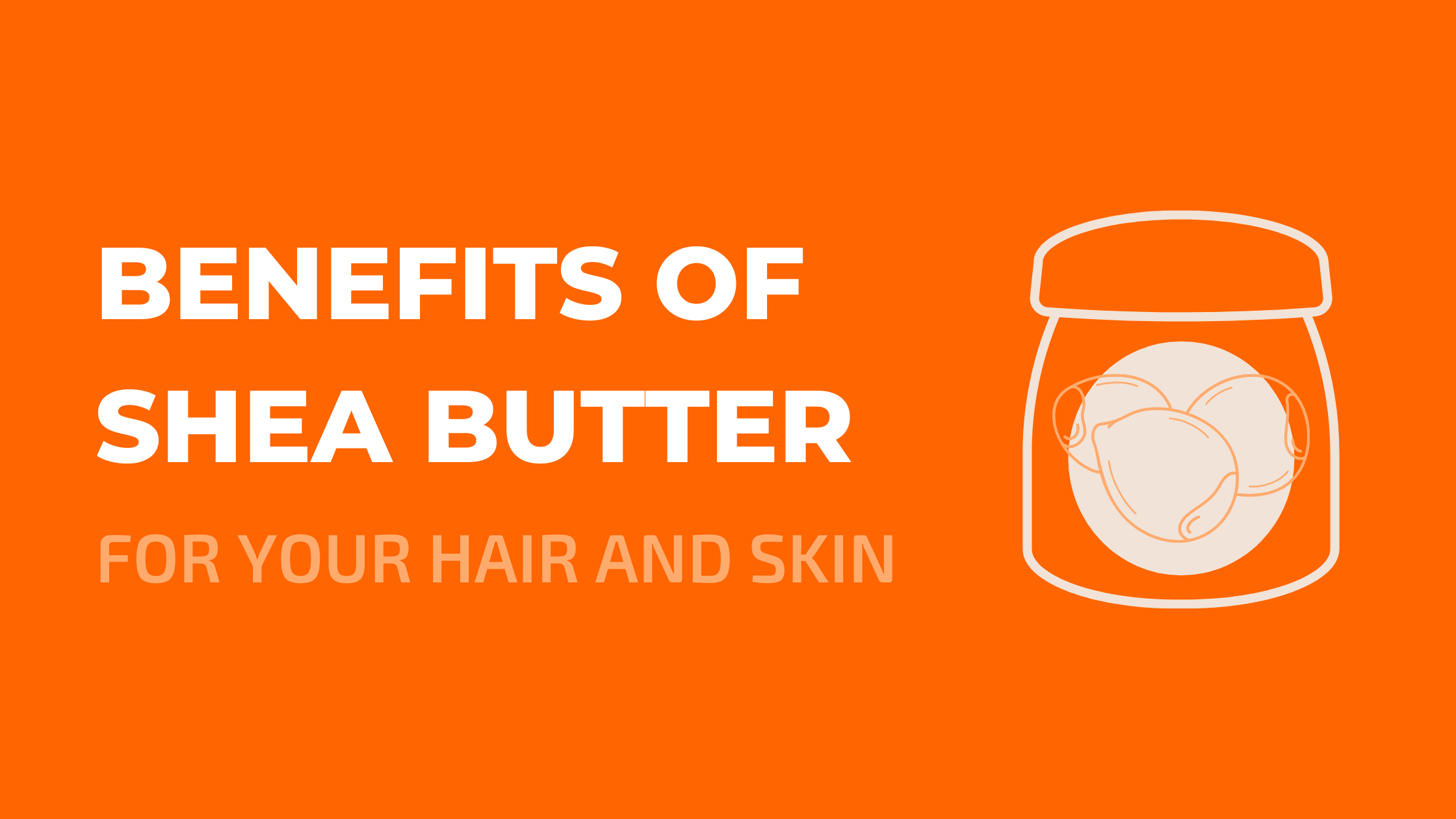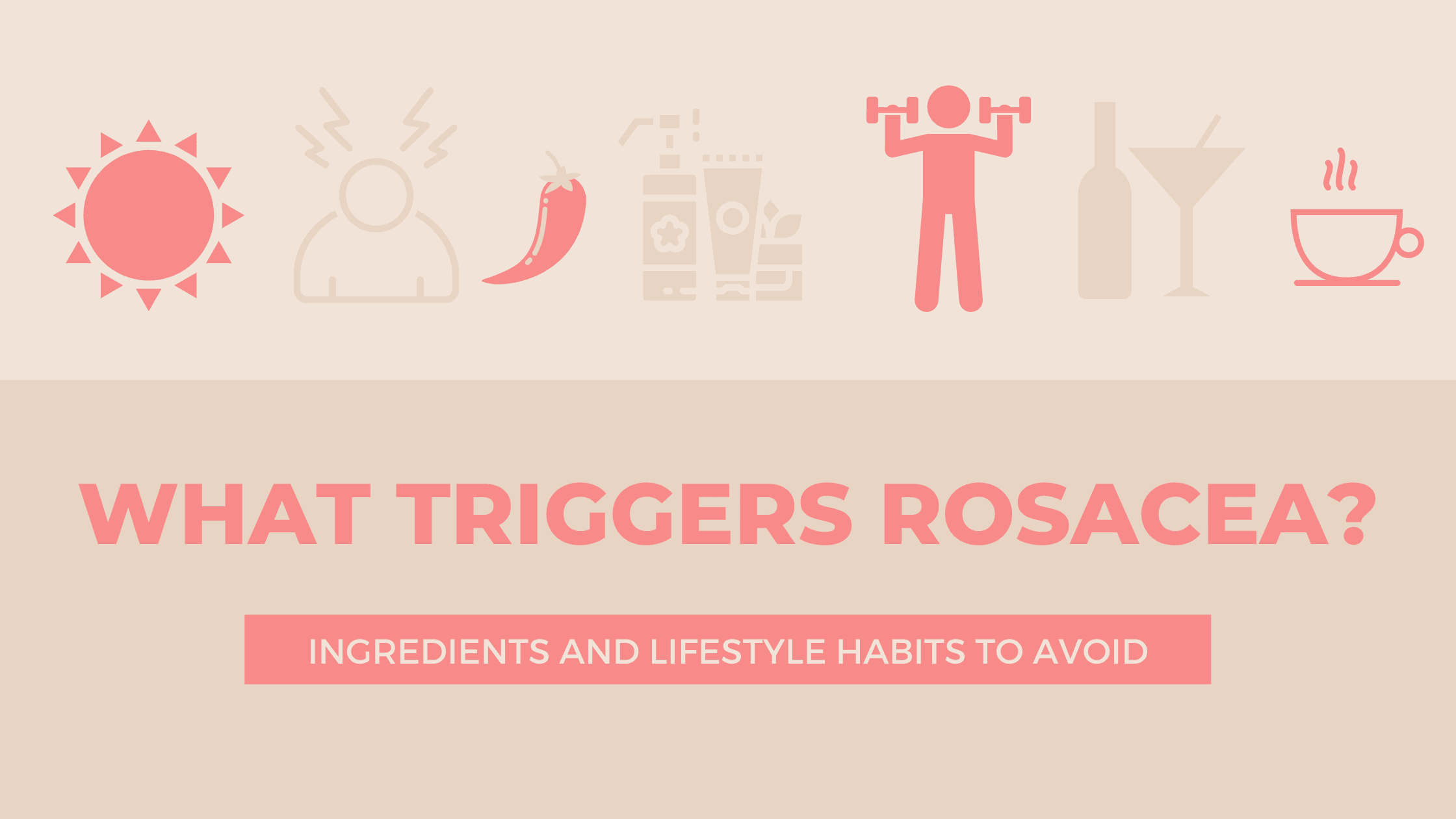
Benefits of Shea Butter for Your Hair and Skin
Sometimes an ingredient comes along that takes the personal care world by storm. Rose water, aloe vera, retinol, watermelon, and tea tree oil (be careful with this one though) have all had their time in the skin care spotlight. One ingredient that has remained a staple in skin care, hair care, and body care products is shea butter. It’s not surprising, considering shea butter boasts a laundry list of benefits. If you spot shea butter on an ingredients list and are looking for answers to what it’s for, keep reading and learn more about what shea butter has to offer to your daily skin and hair care routines.
What is Shea Butter?
Shea (pronounced shay) butter is the thick, creamy fat extracted from the nut of the Shea tree (also known as the Vitellaria paradoxa or Butyrospermum parkii) native to Africa. At room temperature, shea butter is a solid but it melts at around 90 degrees, right around body temperature.
Shea butter has been used for thousands of years in West Africa, with historical documents from the time of Cleopatra’s reign indicating jars of it were used for the hair and skin.
Refined vs Unrefined Shea Butter
Not all shea butter is created equal. The way shea butter is processed can have a great effect on how the products work. First of all, shea butter can be broken up into two main categories, refined or unrefined. Unrefined shea butter may also be listed as “100% pure” or “raw,” and it refers to shea butter that is extracted from shea nuts without the use of chemicals or preservatives. This is the way it has been extracted in West Africa for centuries, and since there is no heavy processing it keeps its natural ivory or yellow color and an earthy, nutty scent.
Refined shea butter on the other hand is usually extracted using hexane or other petroleum solvents and high heat. It also may contain added preservatives and antioxidants that don’t naturally occur, and the natural yellow color and nutty scent are removed during this process giving it a white color, no fragrance, and a longer shelf life.
During the refining process, shea butter loses a lot of its natural healing properties and vitamins due to the high heat including Vitamins A, E, F, and K. Up to 75% of the nutrients are lost during refining, and while you’ll still get the moisturizing effects of shea butter, you will lose many of the other benefits that we will get to in just a second.
To break it down further, there is a classification system for the varying levels of shea butter processing. The recommended classification system for shea butter is as follows:
- A - raw or unrefined
- B - refined
- C - highly refined and extracted with solvents
- D - lowest uncontaminated grade
- E - with contaminants
While a grade B shea butter is safe to use for most, and can still be hydrating, a pure, unrefined shea butter has more nutrients and benefits, and is better suited for those who have salicylate intolerances, and any type of allergies since refined shea butters may be loaded with other plant ingredients or oils.
Shea Butter Benefits for Skin
So what do all of those nutrients do for your skin? The chemical makeup of shea butter is perfectly suited for skin care for a number of reasons.
- Moisturizing - Shea butter is full of fatty acids like linoleic, oleic, stearic, and palmitic acids. This makes it an excellent moisturizer that easily absorbs into the skin and forms a barrier between the skin and the outside environment, which holds the moisture in.
- Absorbs easily - If you have oily skin, moisturizers may be a fear, but the linolenic acid and oleic acid create the perfect balance that isn’t too thick or thin, and it absorbs into the skin easily, leaving no residue or clogged pores.
- Anti-inflammatory - Due to its high percentage of triterpenes, tocopherol, phenols, and sterols, shea butter has strong anti-inflammatory properties that slow the production of inflammatory cells. Skin conditions like eczema, psoriasis, and chronic acne can flare-up and cause redness, itchiness, and dryness which can be painful, so a layer of shea butter can be beneficial and soothing. One study even found that shea butter had similar effects on eczema as a ceramides which are typically regarded as one of the best skin care ingredients for controlling symptoms of eczema. Apart from skin inflammation, shea butter can also help soothe the pain of arthritis, muscle soreness, and nasal congestion.
- Anti-aging - Antioxidants are the key to fighting free radical damage which speeds up signs of aging. Shea butter contains Vitamins A and E which are powerful antioxidants. It also contains triterpenes, which help to prevent collagen breakdown, and a reduction in collagen leads to drier skin and wrinkles, so triterpenes and antioxidants make for a dynamic duo to fight early signs of aging.
- Sun Protection - Shea butter has been found to have some properties that absorb UV rays which are known to cause sunburns, aging, and skin cancer. However this doesn't mean you should ditch your sunblock — shea butter only has an SPF of about 3-4, so stick to your mineral sunscreen with an SPF of 15 or above for solid protection, and just know you’re getting bonus protection when you smoothe on shea butter.
- Soothing - If you do mistakenly forget your sunscreen and end up with a painful burn, shea butter can save and soothe your skin. The combination of fatty acids and anti-inflammatory properties make shea butter a powerful soothing ingredient for not only sunburns, but also bug bites and bee stings.
- Lip care - Shea butter pops up in lip balms and lipsticks often due to its moisturizing, healing, soothing, anti-aging, and sun protection properties that our lips need just as much as the rest of our skin. Since our lips cannot produce their own oil, having an external product to build up moisture during dry winter months is crucial.
Shea Butter Benefits for Hair
Shea butter is especially popular amongst those with curly hair since it’s moisturizing and smoothing properties aid in creating soft, bouncy curls. But shea butter isn't just for our curly haired friends. Anyone looking for softer, healthier hair can see improvements by adding shea butter hair products to your wash routine.
- Moisturizes - Your skin and hair can often react to ingredients similarly. Shea butter hydrates your skin, and it can do the same for your hair, so if your tresses are feeling dry and dull, try a conditioner with shea butter.
- Prevents and Repairs Breakage - Due to the vitamin content it contains, shea butter can help strengthen and restore hair that is prone to brittleness and breakage.
- Soothes Scalp Inflammation - If you rub shea butter on irritated patches of skin on your body, and you also deal with irritation on your scalp, then shea butter’s anti-inflammatory abilities are here to save your scalp.
- Tames frizz - Moisturized hair is less likely to frizz in the first place, and the fatty acids in shea butter are also well suited for controlling and smoothing frizz.
- Protects Color Treated Hair - UV rays can fade hair dye, so that little bit of added SPF from shea butter can help keep your color radiant and fresh.
- Stops the sun from drying hair out - On top of that, overexposure to the sun can strip moisture from the hair so the UV protection of shea butter has multiple
How to Use Shea Butter
Many people will buy pure shea butter in bulk and spread it directly onto their skin, but due to its solidity at room temperature, it can be difficult to spread so mixing it with other more spreadable ingredients makes for a perfect combination. You can try DIY skin care projects, but remember to be wary of the homemade skin care product recipes you find online.
If you want to take a simpler route, find skin and hair products that have shea butter as an ingredient amongst other complementary ingredients that will bring forth the best results.
Cleure carries a wide range of skin care, hair care, and body care products that contain 100% pure, unrefined shea butter, and are expertly formulated with the ideal ratios of ingredients, and recommended by dermatologists, the American Contact Dermatitis Society, and Skin Safe (in collaboration with Mayo Clinic).
Does Shea Butter Contain Salicylates?
If you are on Dr. St Amand’s Guaifenesin Protocol for fibromyalgia treatment, and you're avoiding salicylates, shea butter may spark some concern. Pure butters like cocoa, mango seed, and shea are processed from the fat of the plant seeds and pose no risk of blocking guaifenesin. There is only a risk of a high salicylate content when they are refined and diluted with other oils that are high in salicylates, which many brands will do to cut corners for a cheaper production cost.
Cleure uses only 100% pure, unrefined shea butter in our products so it won’t block guaifenesin. If you are sensitive to even the slightest amount of salicylates then we’d recommend asking your doctor if shea butter is right for you.
If I’m Allergic to Tree Nuts, Can I use Shea Butter?
Tree nut and peanut allergies are among the most common in the world, so since shea nuts come from a tree, it’s natural that they might be a concern for those with tree nut allergies.
However, shea nuts do not pose much risk to those with tree nut allergies. In fact, shea nut allergies are incredibly rare and according to a thorough search of medical literature by the Food Allergy Research and Resource Programme (FARRP), no cases of allergies to shea nuts have been recorded in the medical literature.
It should be clear now why shea butter has been an essential ingredient in personal care throughout history. It may not be the trendiest or newest on the shelf, but it has proved time and time again to be a savior for the hair and skin, and it will likely continue its reign as a staple.



3 comments
nice and informative blog
jbextension
I recently learned I am a bit allergic to the body creams. I am recently looking for non-allergic skin-care. This article is helpful for me.. Thanks a lot
Vilvah
Hey wow! its amazing. Your blog enlighten my thoughts about usage and participance of shea butter in a row of categories. Thank you for such informative blog.
Vilvah
Leave a comment
This site is protected by hCaptcha and the hCaptcha Privacy Policy and Terms of Service apply.